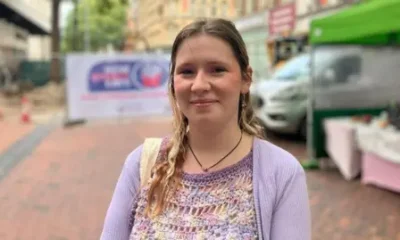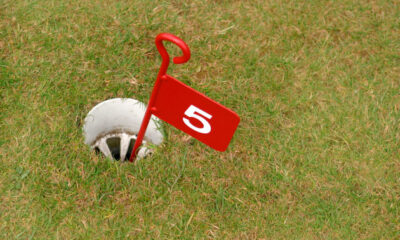Breaking News
Key peace process adviser Martin Mansergh dies aged 78
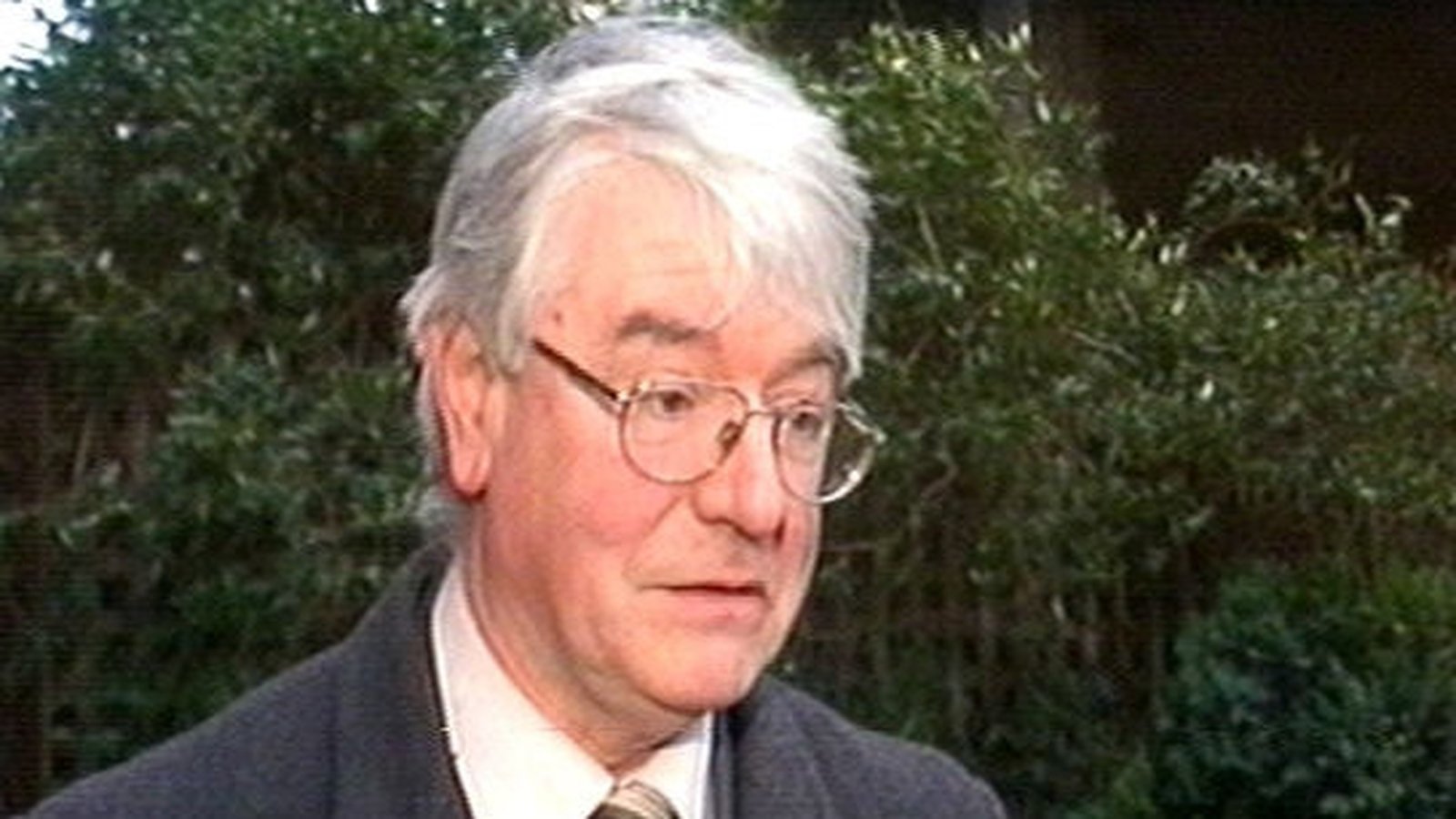
This post was originally published on this site.
Former minister of state and key Fianna Fáil adviser Martin Mansergh has died aged 78.
Mr Mansergh was elected as a senator from 2002 to 2007 and as a TD for Tipperary South from 2007 to 2011.
He served as minister for state with responsibility for the Office of Public Works.
Mr Mansergh was also an adviser to leaders of Fianna Fáil during the peace process in Northern Ireland.
He died on a trip to the Sahara with other retired parliamentarians.
Taoiseach Micheál Martin said he learned of Mr Mansergh’s death “with great sadness”.
Paying tribute to him, Mr Martin said his contribution in “securing peace on this island mark him as a figure who will always be honoured”.
“His early, secret negotiations in Belfast on behalf of Taoisigh and his work through more than a decade were essential in securing the peace settlement and the overcoming of later hurdles,” Mr Martin said.
“As a diplomat and then as an advisor to leaders of Fianna Fáil both in government and in opposition, he was exceptional in his knowledge and devotion to the cause of peace on our island and throughout Europe,” Mr Martin said.
“Martin was a one-off. A true Irish republican. A man of great accomplishments who leaves a proud history,” he added.
Former taoiseach Bertie Ahern said Mr Mansergh was “an extraordinary person with a towering intellect with the ability to see so many angles of a problem or equally an opportunity”.
“He gave his life to public service starting in the Department of Foreign Affairs and then went on to serve Charles Haughey and then Albert Reynolds and finally myself in our roles as Taoiseach and leaders of Fianna Fáil.
“Today I’m thinking of his wife Liz and his family who will be mourning the loss of a great and gentle man and person who made a huge contribution to peace on the island of Ireland,” Mr Ahern added.
Former Sinn Féin leader Gerry Adams also paid tribute to Mr Mansergh.
“Martin Mansergh was a key figure in the efforts to build the peace process and the success of the negotiation leading to the Good Friday Agreement.
“He was one of those who met with Sinn Féin in the late 1980s on behalf of Fianna Fáil and we retained a close relationship since then,” Mr Adams said.
“Martin served a number of Taoisigh and his crucial role, along with other senior government officials, and John Hume, and Sinn Féin representatives, was in the build up to the negotiations at Good Friday in 1998 and in the work that was done after that.
“I value very much the numerous engagements that we had and the relationship that we developed as a result of that.
“I wish to extend my sincere condolences to his wife Elizabeth and his five children,” he added.
Tánaiste Simon Harris said Martin Mansergh was a person of great integrity, saying fewer people were “as consequential in shaping Irish Government policy on Northern Ireland”.
He added that “few on the Irish side were more crucial to the Peace Process, whether through his role as an intermediary or his work to craft a new political and intellectual framework for peace”.
“On a personal level I knew Martin to be a warm, generous with his time and insights, and a person of great integrity with incredible commitment to peace on our island,” he added.
Minister for Finance Paschal Donohoe said he “played an instrumental role in Irish politics for many decades”.
“I knew him personally and always found him to be as much a man of immense intelligence as he was a gentleman.
“I was sorry learn of his passing. He committed so much of his life to working towards a fairer, more peaceful and a better Ireland. Our country is richer for it,” Mr Donohoe said.
Breaking News
Increase in over-65s ‘couch surfing’ amid homelessness
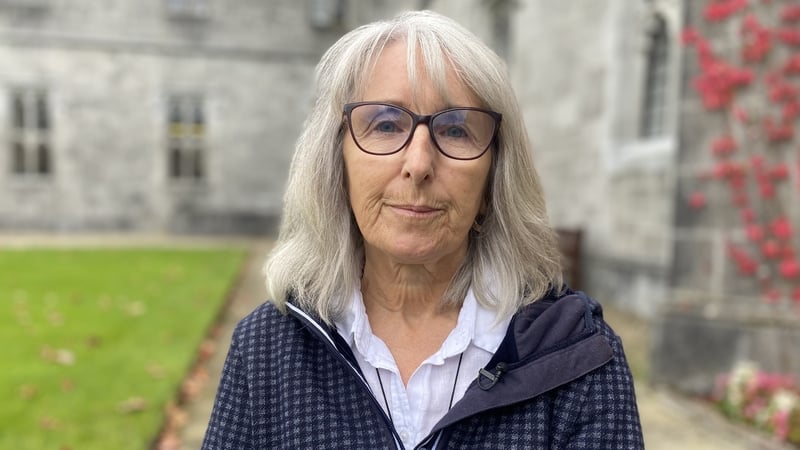
This post was originally published on this site.
Carmel Askin never foresaw herself being homeless in retirement.
In the last 18 months, the 66-year-old has moved house five times.
Unable to afford accommodation in Galway, she turned to her previous occupation to become a live-in carer.
However, it has been precarious.
When a person she had been looking after died, Carmel had to find accommodation somewhere else.
Rents were unaffordable, so she declared herself homeless with the Council in Galway and contacted Galway Simon Communities for support.
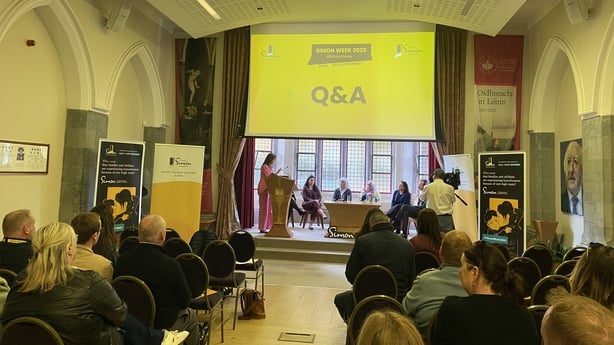
The charity helped her find accommodation to rent, but Ms Askin could not sustain the payments after six months.
Her only choice was to return to caring and to live with older people requiring support.
Two weeks ago, she moved into the home of a woman who she is helping in exchange for accommodation.
Speaking at an event held by the Simon Communities in Galway as part of a week-long campaign highlighting homelessness, she outlined the physical and mental toll.
“In my last job, I was burned out at the end. I had come to the end regarding the amount I could give. My body was exhausted.”
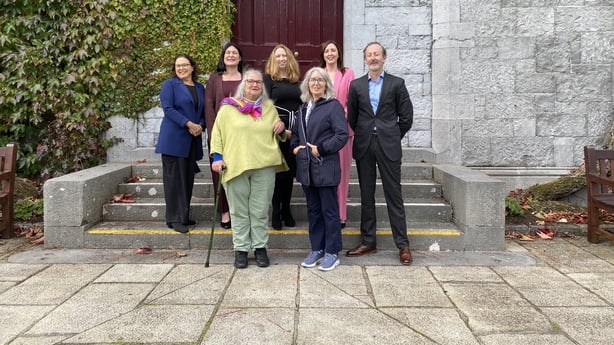
The average rent in Galway is €2,300 per month, and with little to no HAP (Housing Assistance Payment) properties available, an increasing number of people like Ms Askin are “couch surfing”.
“Even in just the few months since I’ve started looking the rents have gone up, so even with HAP I wouldn’t be able to afford them,” Ms Askin said.
These people are not included in the monthly homeless figures released by the Department of Housing each month, because they relate solely to people living in emergency accommodation.
Latest figures show that 16,353 were recorded as homeless in August.
It is an increase of 295 on the previous month, and 131 of those are children.
People over 65 make up a small cohort of the overall homeless figures, however, Chief Executive of Simon Communities Ireland, Ber Grogan, has pointed out that just a number of years ago, child homelessness was in the hundreds.
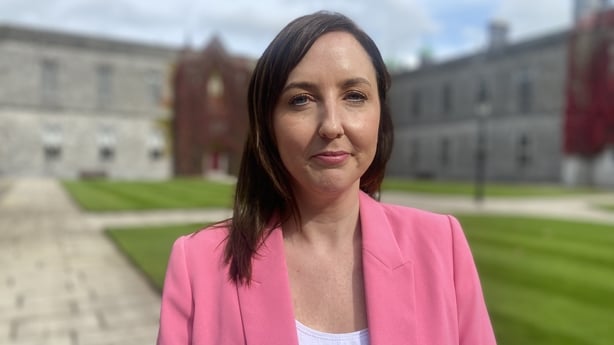
There are now 5,145 children recorded as living in Emergency Accommodation.
Therefore, the Simon Communities said action is required now to tackle over 65s becoming homeless, before the situation gets out of control.
According to the CSO, the older population of 781,400 recorded in 2022 will grow to over 1.94 million by 2057.
Chief Executive of Alone, Seán Moynihan, has pointed out that the number of over-65s renting went up 83% in the last census, and it’s becoming an increasing issue for the charity.
At the Simon Communities event in Galway, it was also pointed out that gender must also be taken into account because women are more likely to take time out of the workforce to become carers.
This puts them at more risk of homelessness.
Ms Askin does not know what the future holds. She is not convinced that she will ever be able to afford rent in the current climate, never mind a home of her own.
Breaking News
Scottish Prison Service admits unlawful death of man in custody
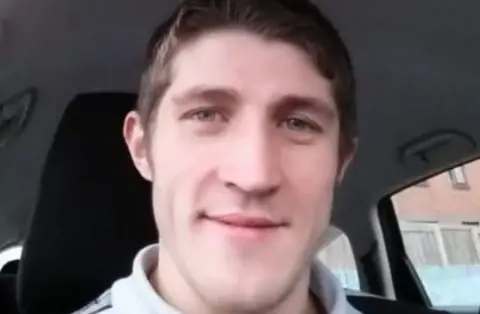
Read more on post.
Katie Hunter and
Georgina HayesBBC Scotland
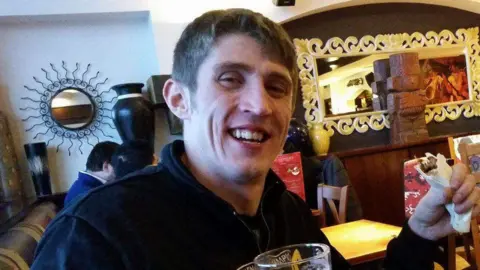 Marshall Family
Marshall FamilyThe Scottish Prison Service has admitted that the death of a man in custody was unlawful – 10 years on from the fatality.
Allan Marshall, 30, was on remand at HMP Edinburgh in March 2015 when he was restrained face down by 17 prison officers. He died four days later.
His family has now received an apology from the prison service, Crown Office and Police Scotland after the Court of Session heard that the level of force went beyond what was necessary.
It is the first time that all three parties have publicly apologised, accepted it as an unlawful death and accepted that the state failed to adequately investigate.
Mr Marshall, from Carluke in South Lanarkshire, was on remand for unpaid fines and breach of the peace charges when he experienced a mental health crisis.
He was transferred to HMP Edinburgh’s segregation unit after prison officers said he had become agitated.
CCTV showed Mr Marshall, who had an underlying heart condition, being dragged and restrained by up to 17 prison officers – some of whom used their feet.
The court heard that there was “never any need” for force to be used on Mr Marshall and that he should have received medical attention instead.
It also heard that plastic cuffs were used and the “extent of force was plainly excessive and beyond what was necessary”.
The KC acting on behalf of Scottish ministers and the Scottish Prison Service said they acknowledge the “significance and the gravity of such a concession in respect of an individual who was in the custody of the state at the time of his death”
The Scottish Prison Service said it had “learned” from the incident and continually sought to improve how it supports staff and keeps people safe.
A spokesperson added: “We sincerely apologise for failings which resulted in the sad death of Mr Marshall and our thoughts and condolences remain with his family.”
Outside the Court of Session in Edinburgh, Mr Marshall’s aunt Sharon MacFadyen said the family had been waiting a decade for the admission.
“It doesn’t feel real, it’s still like we’re in a daze,” she said.
Ten year fight
Jo Farrell, chief constable of Police Scotland, said: “The investigation following the death of Allan Marshall in 2015 fell below the standard required and for that I am sorry.
“On behalf of Police Scotland, I apologise to Allan’s family and place on record my condolences for their loss.”
The family’s lawyer, Barbara Bolton, said the Scottish Prison Service should have publicly apologised to the family long ago.
“Finally they have secured the admissions that they ought to have had,” she said.
“But instead they have had denial and they have been ignored and they have had to fight for this for 10 years.”
An unpublished Crown Office review seen by BBC Scotland in 2024 said a decision not to prosecute the prison officers, made two months after Mr Marshall’s death, was “incorrect”.
The Crown Office said it had undertaken “significant reforms” since Mr Marshall’s case and that bereaved families “can expect investigations to be pursued with the vigour and expertise they deserve”.
Breaking News
EU steps up ‘drone wall’ plans after Russian incursions

Read more on post.
EU countries have agreed on the urgent need to create a “wall” of anti-drone defences, after airspace violations by Russia rattled eastern members.
Focus sharpened on the threat this week after unidentified drones forced Denmark to shut some of its airports.
EU defence commissioner Andrius Kubilius held online talks with ministers from some ten EU states mainly along the bloc’s eastern border, with Denmark joining after the drone incidents there.
Ukraine – which has developed a raft of capabilities to detect and shoot down Russian drone swarms more cheaply – also took part.
“The repeated violations of our airspace are unacceptable. The message is clear: Russia is testing the EU and NATO. And our response must be firm, united, and immediate,” Mr Kubilius told a news conference in Helsinki after the talks.
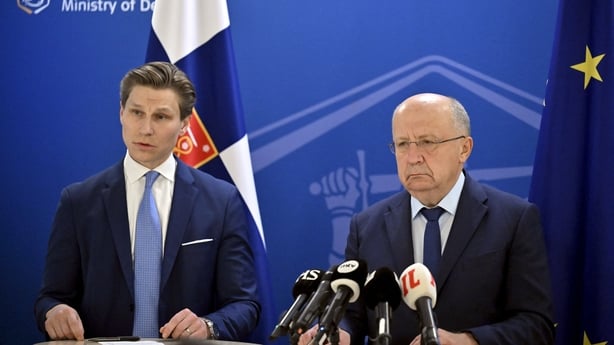
“At today’s meeting, we agreed to move from concept to concrete actions.”
Mr Kubilius said ministers backed a broad plan to bolster the EU’s eastern defences and said the “immediate priority” should be a “drone wall, with advanced detection, tracking, and interception capabilities”.
Ukraine’s defence minister Denys Shmygal said his country was “ready to participate” in the project.
“The drone wall will create a fundamentally new defence ecosystem in Europe, of which Ukraine is ready to be a part,” he wrote on social media.
Polish incursion
EU officials say the initial focus would be to develop a network of sensors to help better detect any incursions.
They say the aim is to have that first stage ready within a year – but building capabilities to intercept the drones would take longer.
EU chief Ursula von der Leyen made a first call for the “drone wall” in a keynote speech earlier this month, hours after NATO shot down Russian drones in Poland.
The NATO response to Russia’s drone incursion in Poland showed up the gaps in the alliance’s arsenal for tackling that threat.
Read more:
NATO to beef up eastern flank following drone incursion in Poland
Romania scrambles jets after drone incursion during Russian attack on Ukraine
NATO had to use top-of-the-range fighters firing costly missiles to shoot down a handful of cheap Russian drones.
The alliance has rushed more hardware to its eastern flank in the wake of the incident, but still lacks the sort of low-cost capabilities Ukraine uses.
The “drone wall” proposal is part of Europe’s broader push to bolster its defences in the face of the threat from Russia.
Mr Kubilius has said the programme should be one of the new flagship defence projects that the bloc is working on.
EU leaders are set to debate the defence push – and potential new initiatives – at a summit in Copenhagen next week.
-
Politics3 days ago
European Parliament snubs Orbán with vote to shield Italian MEP from Hungarian arrest
-
Culture3 weeks ago
Life, loss, fame & family – the IFI Documentary Festival in focus
-
Health4 days ago
EU renews support for WHO’s Universal Health Coverage Partnership
-
Environment7 days ago
Key oceans treaty crosses threshold to come into force
-
Culture2 months ago
Fatal, flashy and indecent – the movies of Adrian Lyne revisited
-
Culture3 days ago
Twilight at 20: the many afterlives of Stephenie Meyer’s vampires
-
Culture1 week ago
Farewell, Sundance – how Robert Redford changed cinema forever
-
Culture3 weeks ago
What is KPop Demon Hunters, and why is everyone talking about it?


